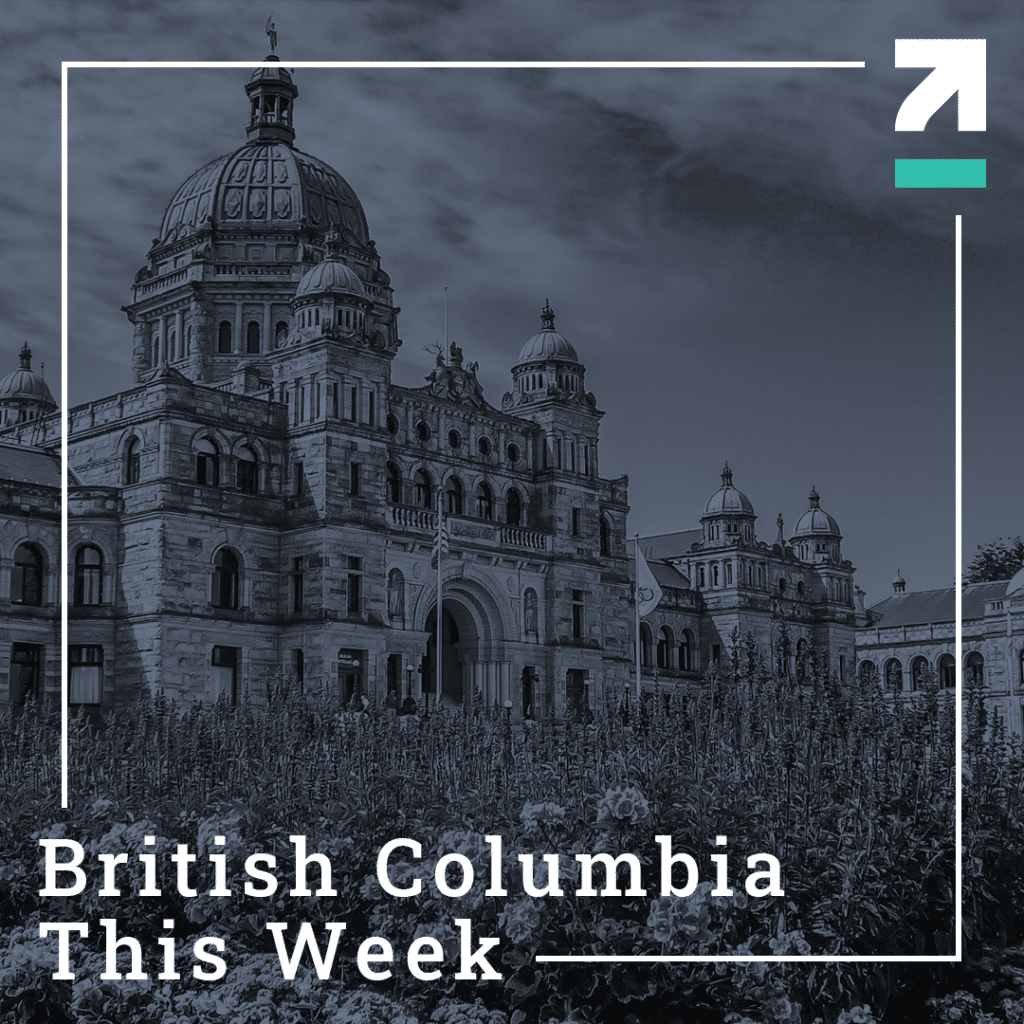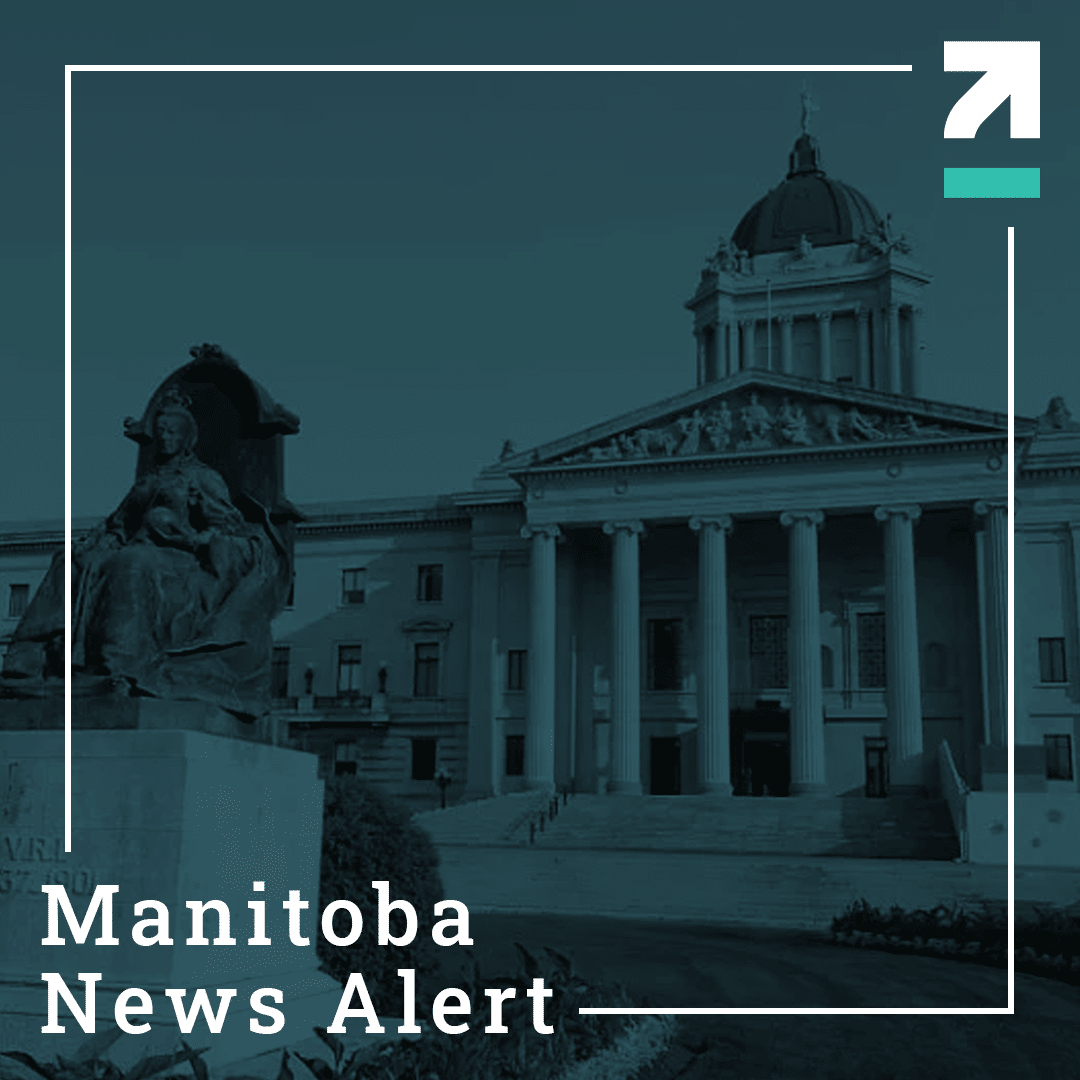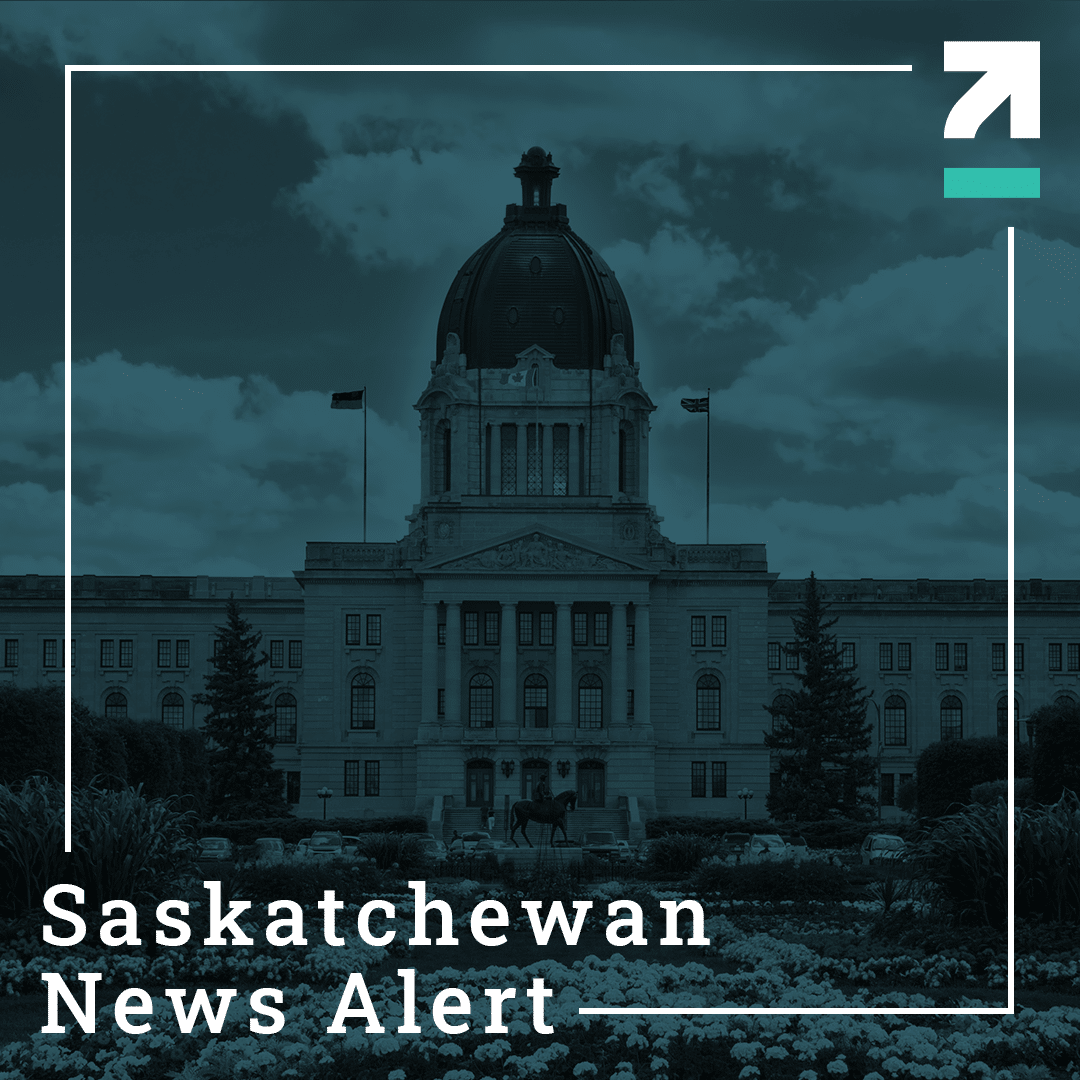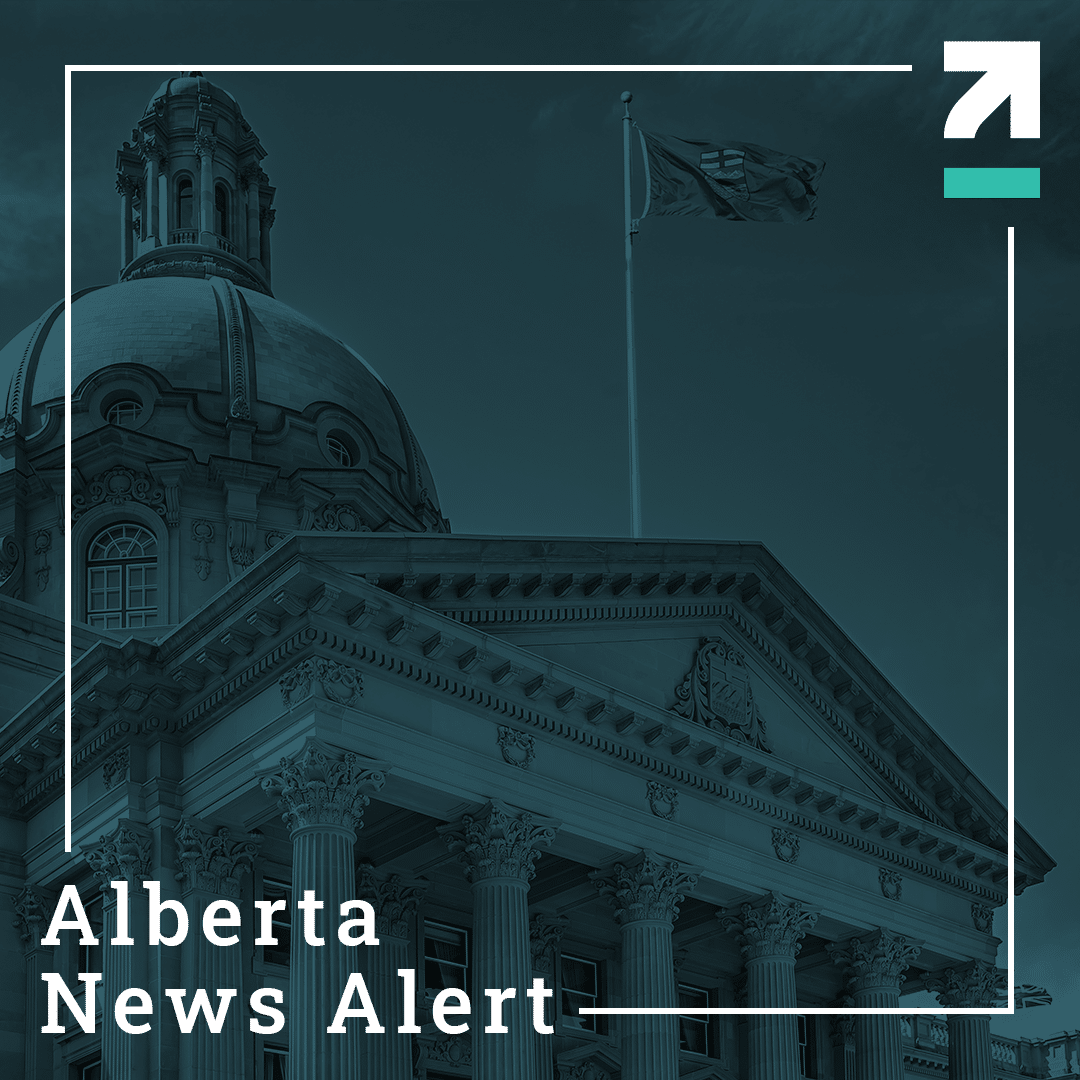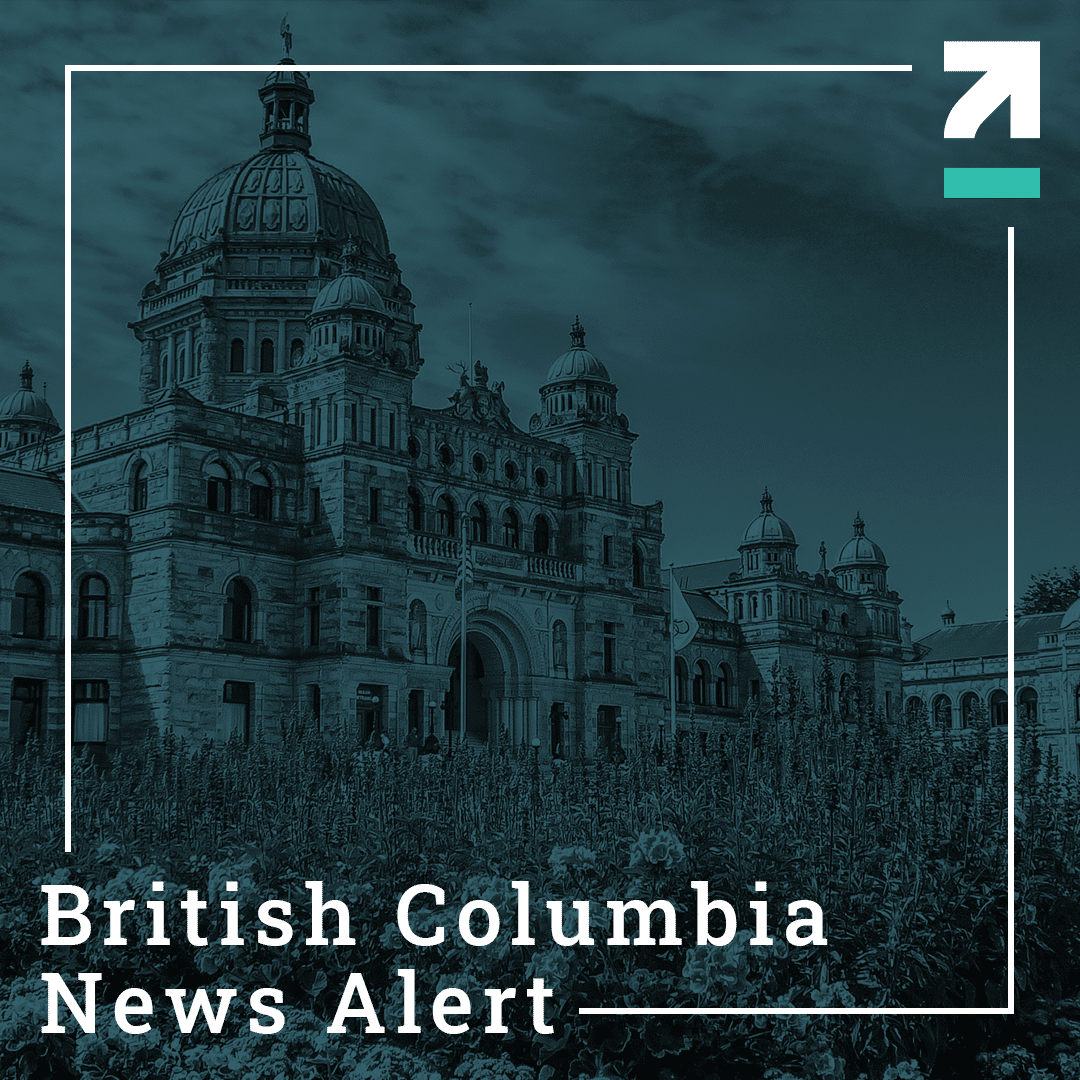What to Expect
MLAs are on constituency break this week and next. The Premier will be doing some touring of the province, but mostly meeting with stakeholders and holding limited public events. Official inflation numbers have increased the minimum wage to $15.65, the highest in the country, and the decision to end the vaccine mandate for health care workers will dominate discussions between MLAs and their constituents this week.
On Thursday this week, provincial and federal Ministers will be available to the media following a federal-provincial meeting on emergency preparedness.
The Week That Was
In response to the province’s growing demand for early childhood educators and healthcare workers, B.C. will be taking the necessary steps to ensure that these fields are prioritized within the Provincial Nominee Program Skills Immigration stream.
Two groups representing the interests of more than a dozen First Nation communities along the Coastal GasLink pipeline route have signed option agreements to acquire a 10-per-cent stake in the $6.7-billion project in northern British Columbia.
Due to continually increasing vaccination rates against COVID-19, the province is beginning to gradually lift additional public health measures. The following measures are being repealed, effective March 11:
Face coverings order for indoor settings;
The requirement of faith communities to restrict attendance based on vaccination status; and
COVID-19 safety plans submitted to a medical health officer for overnight camps.
Effective April 8:
Showing the BC Vaccine Card proof of vaccination to access non-essential events, services and businesses will no longer be required;
The remainder of the Workplace Safety Order will be lifted; and
Full vaccination requirement under the Post-secondary Institution Housing COVID-19 Preventative Measures Order will be repealed.
The province gained 21,000 jobs in February, bringing the unemployment rate to 4.9 per cent, the lowest since January 2020.
The provincial government is streamlining the voting process through changes to the Election Act. The changes are as follows:
Adding vote-counting machines;
Electronic voting books to verify voter information; and
Ballot printers at polling stations.

